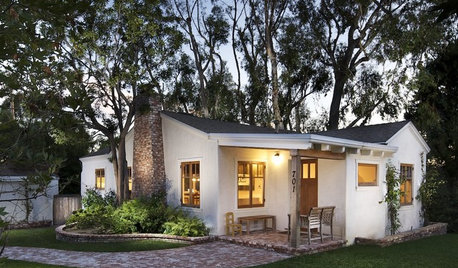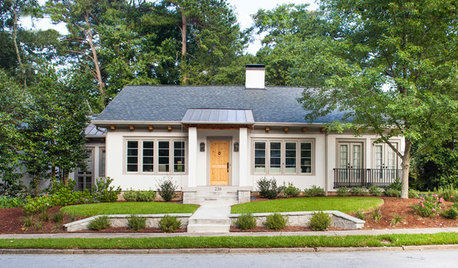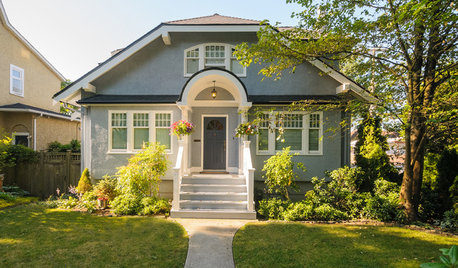Short sale/foreclosure
jane__ny
13 years ago
Related Stories

MOVING5 Risks in Buying a Short-Sale Home — and How to Handle Them
Don’t let the lure of a great deal blind you to the hidden costs and issues in snagging a short-sale property
Full Story
BEFORE AND AFTERSHouzz Tour: A Georgia Foreclosure Gets a Major Overhaul
Gutting and redesigning turn a mishmash 1925 home into a unified haven with better flow
Full Story
SELLING YOUR HOUSEHow to Stage Your Kitchen for a Home Sale
Attract buyers with a kitchen that’s clean, bright and welcoming — no expensive overhaul required
Full Story
MOVINGWhat Those Home-Sale Disclosures Are Really Saying
Avoid costly surprises by knowing what’s included in a home seller’s disclosure, what’s not and what you can do if you suspect foul play
Full Story
DECORATING GUIDESA Short History of the Sunburst Mirror
Learn the origins and uses of this popular, captivating home decor item
Full Story
SHOP HOUZZShop Houzz: Outdoor Living Preseason Sale
Get up to 70% off on lounging, entertaining and decor essentials for the deck or patio
Full Story0

BUDGET DECORATING14 Ways to Make More Money at a Yard Sale — and Have Fun Too
Maximize profits and have a ball selling your old stuff, with these tips to help you plan, advertise and style your yard sale effectively
Full Story
SELLING YOUR HOUSEYour Home-Selling Guide for a Faster and Better Sale
Learn staging and curb appeal tricks, how to get the best photos and more in this roundup focusing on high-impact house-selling strategies
Full Story
Sales Secrets for Interior Designers
Pro to pro: Learn 3 proven techniques to please clients and increase revenues, developed by a designer with 40 years of success
Full Story
SELLING YOUR HOUSEFix It or Not? What to Know When Prepping Your Home for Sale
Find out whether a repair is worth making before you put your house on the market
Full StorySponsored
Columbus Design-Build, Kitchen & Bath Remodeling, Historic Renovations
More Discussions







Billl
brickeyee
Related Professionals
Baton Rouge Architects & Building Designers · Parkway Architects & Building Designers · Pedley Architects & Building Designers · South Lake Tahoe Architects & Building Designers · American Canyon General Contractors · Bound Brook General Contractors · Conway General Contractors · Galveston General Contractors · Hutchinson General Contractors · Phenix City General Contractors · Syosset General Contractors · West Lafayette General Contractors · Palm River-Clair Mel General Contractors · Clinton Township Interior Designers & Decorators · View Park-Windsor Hills Interior Designers & Decoratorsjane__nyOriginal Author
brickeyee
terezosa / terriks
jane__nyOriginal Author
susanjn
terezosa / terriks
brickeyee
jane__nyOriginal Author
terezosa / terriks
brickeyee
runninginplace
jane__nyOriginal Author
chinchette